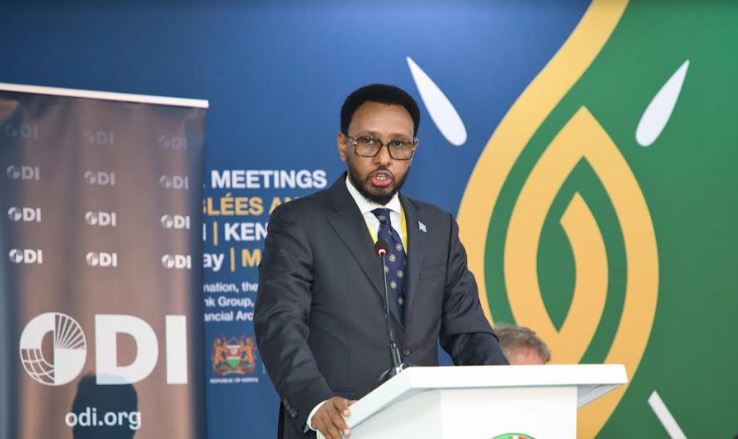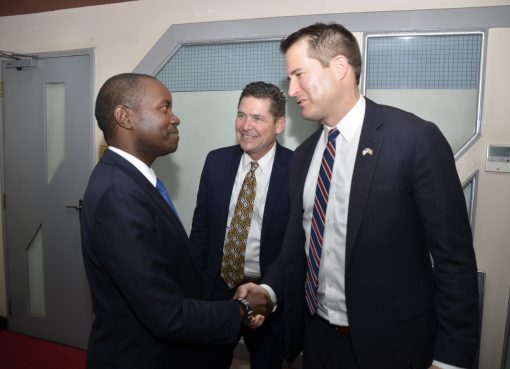Countries in Africa have been called upon to build resilient economies through collaborative action in efforts to face ever-emerging global shocks.
Somalia’s Minister of Finance, Bihi Iman Egeh, speaking during the African Development Bank’s (AfDB) Annual Meetings in Nairobi, said that building resilient economies that could respond to diverse, unpredictable, cyclical, and often very deep, shocks was the only way forward to build a better future for a large portion of the African population.
Speaking at a key side event organised by ODI in collaboration with the African Economic Research Consortium (AERC), Egeh painted a sobering picture of a continent grappling with a “new normal” of compounding crises, from the lingering effects of the COVID-19 pandemic and the intensifying climate crisis to geopolitical conflicts and crippling debt levels.
These shocks, he warned, disproportionately harm Africa’s most vulnerable citizens and threaten to derail hard-won development gains.
The event focused on unveiling research findings by researchers from ODI, AERC, the Partnership for Economic Policy (PEP), and the Economic Research Forum (ERF), funded by Canada’s International Development Research Centre (IDRC), on the devastating impact of multiple crises on African economies.
Simulations show even a modest 10% rise in food and fertiliser prices could cost the continent $7 billion annually, the Minister said, citing ODI research on the impact of the Russia-Ukraine war on Africa.
Drawing on Somalia’s own experience in overcoming conflict, recurrent droughts, and economic instability, the Minister outlined a bold vision for a resilient Africa, emphasising the need for strong foundations and “tailored economic reforms” that address each nation’s unique challenges and opportunities.
Egeh highlighted Somalia’s recent success in achieving the HIPC Completion Point and attaining debt relief from most of its major creditors following years of rigorous reforms, which serves as a model for other African nations grappling with economic instability.
He stressed that macroeconomic stability, robust domestic revenue mobilisation, and strong governance are the cornerstones of resilience.
“Somalia’s post-debt relief economic actions are focused on growth and creating opportunities for our people,” the Minister affirmed as he cautioned that debt relief alone is not enough.
“It is important to understand that economic shocks cannot be dealt with in silos. They do not come one at a time and say, ‘Solve me first, please,” he said.
The Minister’s vision for a resilient Africa extends beyond economic reforms. He called for increased investment in critical infrastructure, greater support for climate adaptation initiatives, and social safety nets to protect the most vulnerable.
In a direct challenge to the international community, Egeh called for a radical overhaul of the existing financial architecture, arguing that current systems were ill-equipped to address the complex and interconnected challenges facing Africa, particularly in the areas of climate change and energy access.
Despite the daunting challenges, Egeh expressed unwavering optimism about Africa’s future, citing the continent’s burgeoning youth population, expanding digital economy, and growing intra-African trade as powerful engines for sustainable growth and resilience.
He also stressed that realizing this potential requires a fundamental shift in how the global community supports the continent, calling for genuine burden-sharing and enhanced international cooperation to build resilient African economies.
“Partnerships are key to the successes of all economies in this age of greater interdependence and connectivity. Accordingly, there must be genuine burden-sharing if we are to build resilient African economies in this uncertain time of global shocks. South-South and North-South cooperation and knowledge sharing are crucial,” said Egeh.
The Minister’s address ignited a sense of urgency and renewed commitment among participants and the conference’s overarching theme, with leading experts echoing his calls for a multi-pronged approach addressing economic, social, environmental, and governance factors.
By Joseph Ng’ang’a



